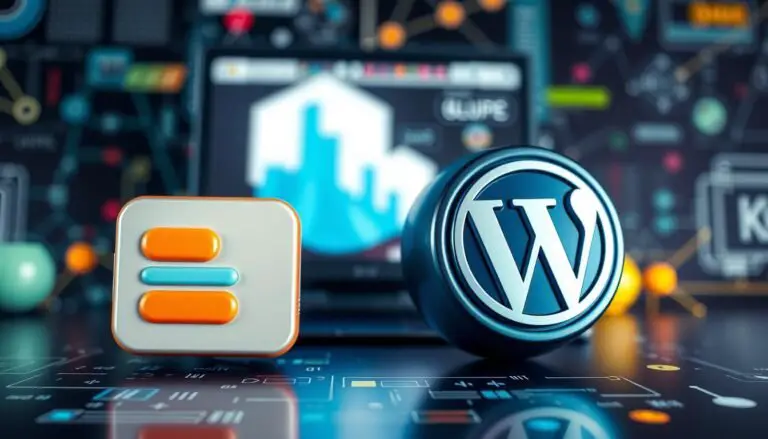Disclaimer: This post may contain affiliate links, meaning we get a small commission if you make a purchase through our link at no extra cost to you. For more information, please visit our Disclaimer Page.
Struggling to see results from your blog?
L:earning how to create an email list can be a game-changer.
Unlike social media followers, your email list is yours to own, providing a direct, algorithm-free connection to your most engaged readers.
If you have 10 or 10,000 subscribers, each person has actively chosen to hear from you, making them more valuable than passive followers.
In this post, we’ll cover how to create and grow your email list, why email marketing is crucial for success, and proven strategies to turn readers into loyal subscribers.
What’s the importance of building an email list?
Building an email list is one of the most important things you can do to make your blog successful for a long time.
Here’s why you need to start building an email list right away:
Direct Way to Talk to People
Your email list is like having your own special phone line to your readers. It’s super valuable because it lets you talk directly to them.
Unlike social media where what you post might not be seen by everyone, your emails go straight to your readers’ inboxes. This gives you:
- Total control over what they see
- More people actually paying attention compared to social media
- The power to reach your readers whenever you want
- Not having to worry about changes on social media sites
You Own It!
When you create an email list, you own the connection with your readers.
Think about this:
| Place | Who’s in Charge? | How Reliable Is It? | How Risky Is It? |
|---|---|---|---|
| Your Email List | You! | Very Reliable | Not Risky |
| Social Media | Social Media Site | Okay | Risky |
| Search Engines | Search Engine | Not Reliable | Very Risky |
Make Money!
Your email list gets more valuable as it grows, and you can use it to make money in different ways:
- Selling products directly
- Affiliate marketing
- Newsletters
- Special content
- Selling courses
Keeps Your Blog Going
An email list helps keep your blog going strong by:
- Not relying on other platforms
- Having a group of loyal readers
- Becoming an expert in your area
- Getting traffic to your blog
- Growing your blog
People See You as an Expert
A big email list shows that you know what you are talking about:
- Shows people like your blog
- Helps new readers trust you
- Can help you find partners
- Can help you with speaking
- Helps you work with others
What Is an Email List Anyway?
An email list is like a digital treasure chest—it’s a list of email addresses from people who said it was okay for you to contact them.
Think of it as a special club where everyone is interested in what you have to share.
What’s in an Email List?
Your email list has a few key things:
- Reader Information
- Email addresses
- Names (first and/or last)
- Extra info about them (optional)
- When they signed up
- What they like
Different Kinds of Email Lists
Here are some common types of email lists you might have:
| List | What It’s For | Best for |
|---|---|---|
| Main List | Everyone | General updates |
| Special Lists | Specific topics | Specific content |
| New Readers | Welcome emails | Getting them started |
| VIP Lists | Special content | Loyal readers |
What Makes a Good Email List?
Your email list is more than just a bunch of email addresses. Here is what makes it valuable:
- Good Readers
- Readers who care
- Interested in what you talk about
- Actually use their email
- Good Organization
- Divided into groups
- Up-to-date information
- Knowing what they like
- Clean List
- Real emails
- No bounced emails
- Up-to-date preferences
How to Manage Your Email List
To manage your email list, you will need a good email service.
Legal Things
When building your email list, you must follow some rules:
- Rules (GDPR)
- Get their okay
- Have a clear privacy policy
- Let them opt-out
- Protect their info
- Rules (CAN-SPAM)
- Include your address
- Have a way to unsubscribe
- Be honest
- Be clear about who you are
How Healthy Is Your List?
To see if your email list is doing well, check these things:
| What to Check | Good Range | Why It Matters |
|---|---|---|
| Open Rate | 15–25 per cent | High |
| Click Rate | 2–5 per cent | Medium |
| Bounce Rate | Less than 2 per cent | High |
| Unsubscribe Rate | Less than 0.5 per cent | Medium |
What You Need to Build Your List
To build your email list, you need:
- Tech Stuff
- Email service
- Sign-up forms
- Landing pages
- Thank you pages
- Good Content
- Welcome emails
- Freebies
- Newsletters
- Automated emails
- Things That Connect
- Website tools
- Social media connections
- Tracking
- Form builders
Your email list is super important for your blog.
What to Send After You Create an Email List
A Welcome Series
Your welcome series is the foundation of your email marketing strategy. It’s your first impression with new subscribers, so making it impactful is essential.
A welcome series consists of automated emails designed to help you connect with your new readers from the beginning.
Here’s what should be included in your welcome series:
Email 1: The Quick Welcome
- Send this email right after someone signs up.
- Thank them for subscribing.
- Deliver the promised freebie (if applicable).
- Let them know what to expect from future emails.
- Introduce yourself briefly.
- Provide a quick, actionable tip they can use right away.
Email 2: Give Them Something Good (Day 2–3)
This email should focus on offering value:
- Share your best content.
- Give them a useful tip or trick.
- Ask them to add your email to their safe list.
- Encourage them to connect with you on social media.
Email 3: Tell Your Story (Day 4–5)
Now is the time to connect emotionally:
- Share your personal story and challenges.
- Explain why you do what you do.
- Show empathy for their problems.
- Show how you can help them.
- Ask a question to encourage engagement and feedback.
Email 4: Ask Them Questions (Day 6–7)
Ask your readers what they need:
- Inquire about their biggest challenges.
- Find out what goals they want to achieve.
- Ask what kind of content they prefer.
- Use simple multiple-choice questions for easy responses.
- Offer a reward for completing the survey.
Timing for Your Welcome Series
| Email Number | Timing | Main Goal | What to Include |
|---|---|---|---|
| Email 1 | Right Away | First Impression | Welcome and Delivery |
| Email 2 | Day 2–3 | Provide Value | Best Content and Tips |
| Email 3 | Day 4–5 | Build Connection | Your Story |
| Email 4 | Day 6–7 | Gather Feedback | Survey and Questions |
Tips for Your Welcome Series
Make It Personal
- Use their first name (if possible).
- Mention where they signed up.
- Personalize based on their interests and behavior.
Tech Considerations
- Test all links and downloads.
- Ensure the emails are mobile-friendly.
- Verify email deliverability.
- Track open rates and click rates.
Content Tips
- Keep emails short and focused.
- Include clear calls to action.
- Balance text with visuals.
- Stay consistent with your branding.
Encourage Engagement
- Ask readers to reply to your emails.
- Use engaging questions.
- Share testimonials or social proof.
- Offer valuable resources.
Metrics to Monitor
- Open rates
- Click-through rates
- Responses
- Unsubscribes
- Completion of the series
Your welcome series should:
- Build trust and show reliability.
- Set clear expectations for future emails.
- Provide value immediately.
- Engage your readers.
- Demonstrate empathy for their needs.
Once you’ve connected with your readers through the welcome series, maintain regular communication to keep them engaged.
Signing Up for an Email Marketing Service
Before you start building your email list, you need a reliable email marketing service to manage your readers and send professional emails.
One great option for new bloggers is MailerLite.
5 Reasons I Like MailerLite
| Feature | Benefit for New Bloggers |
|---|---|
| Free Plan | Start with up to 1,000 readers without paying |
| Easy-to-Use Interface | Simple to use and create email campaigns |
| Drag-and-Drop Editor | Design professional emails without knowing how to code |
| Automation Tools | Set up welcome emails and send emails to specific groups |
| Landing Page Builder | Create sign-up pages without needing extra tools |
Why MailerLite Is Good for Beginners
- Good Price
- Free plan for up to 1,000 subscribers.
- Affordable paid plans as your list grows.
- No credit card required to start.
- Important Features
- Automated email sequences.
- Customizable sign-up forms.
- A/B testing for emails to see what resonates best with your audience.
- Detailed reports to track email performance.
- Email templates optimized for mobile devices.
- Good Delivery
- High email deliverability rates.
- Protection against spam filters.
- Tools to verify your email identity and improve deliverability.
Now that you’ve chosen a great email marketing service like MailerLite, let’s dive into creating content that will get people to sign up for your email list.
Create Good Content
Know What Your Readers Want
To effectively grow your email list, you need to offer content that your readers want. Understanding your audience’s problems, needs, and questions is essential before creating anything.
Here are some ways to gather insights:
- Check other websites and blogs in your niche.
- Review comments on your blog posts.
- Monitor social media conversations.
- Research popular content in your niche.
- Ask your readers directly for feedback.
Types of Content That Work Well
Certain types of content are proven to attract sign-ups. Here’s a breakdown:
| Content Type | Benefits | Best For |
|---|---|---|
| How-to Guides | Practical, solves problems | Offering actionable solutions |
| Case Studies | Demonstrates proof that something works | Building trust and credibility |
| Interviews | Provides expert insights | Showcasing authority in your niche |
| Lists | Organizes valuable information | Offering quick and digestible content |
| Series | Breaks down complex topics into steps | Providing detailed, step-by-step instructions |
By choosing a reliable email service like MailerLite, you’re setting yourself up for success.
Start by creating valuable content that resonates with your audience, and use automation to build a relationship with your readers from the very start.
Content Calendar Planning
Creating a consistent content schedule is essential for long-term blogging success. A content calendar helps you stay organized and ensures that you consistently provide value to your readers. Here’s how you can structure your planning:
Weekly Planning
One Long-Form Article (2000+ words)
Focus on in-depth, valuable content that will serve as the cornerstone of your content strategy.
Two Shorter Posts
Provide additional value with posts that are concise but informative.
Update Existing Content
Refresh older posts to keep them relevant and optimized for search engines.
Regular Social Media Updates
Consistently engage with your audience through social media platforms to drive traffic and grow your following.
Monthly Goals
Set Subscriber Targets
Establish growth goals for your email list and track progress each month.
Plan Content Themes
Organize your content around specific themes to create a cohesive blog experience.
Schedule Content Upgrades
Create valuable upgrades to existing content (like downloadable PDFs or additional resources).
Review and Adjust Strategies
Assess the performance of your content and adjust strategies for improvement.
Offer Freebies to Incentivize Subscriptions
Entice visitors to join your email list by offering valuable opt-in incentives.
Three Types of Opt-in Freebies
Offering free resources is one of the most effective ways to grow your email list. Here are three types of opt-in freebies you can create:
| Freebie Type | Examples | Best For |
|---|---|---|
| Quick-Win Freebies | Checklists, templates, worksheets, swipe files, cheat sheets, resource lists | Providing immediate value |
| Educational Freebies | Mini-courses, challenges, tutorials, webinars, eBooks, guides | Offering in-depth knowledge |
| Tools and Resources | Spreadsheets, calculators, printables, design elements, stock photos, software trials | Offering practical tools and resources |
How to Use Freebies
Create Your Lead Magnet
Your lead magnet should solve a specific problem for your audience. Here’s how to make it effective:
- Solve One Specific Problem: Focus on one clear, actionable solution.
- Ensure Value and Actionability: Offer something that will truly help your audience.
- Keep It Concise and Professional: Make it easy to digest while maintaining a high-quality design.
- Test Before Launch: Ensure your lead magnet works and delivers real value before sharing it with your audience.
Set Up Delivery System
Once you’ve created your lead magnet, set up an efficient delivery system:
- Use an Email Service Provider: Use services like MailerLite to manage opt-ins and deliver your freebies.
- Create a Welcome Email Sequence: Introduce your new subscribers to your content and your brand.
- Automate Delivery and Test: Make sure your delivery system works smoothly by automating the process and testing everything beforehand.
Promote Your Freebie
Once you’ve created your freebie, you’ll need to promote it to attract new subscribers:
- Design Landing Pages and Opt-In Forms: Use services like MailerLite to create professional landing pages and forms.
- Share on Social Media, Guest Posts, and Your Bio: Get the word out about your freebie across all platforms.
- Optimize and Track: Monitor how well your freebies perform and optimize based on data.
Optimize and Track
To ensure your freebies are successful:
- Monitor Conversions and Collect Feedback: Track how many visitors convert into subscribers, and ask for feedback to improve.
- A/B Test and Adjust Based on Results: Experiment with different offers and placements to see what resonates best with your audience.
- Place Opt-In Forms Strategically: Position your opt-in forms in high-traffic areas to maximize conversions.
Drive Traffic to Your Content
To grow your email list, you need traffic. Here’s how to get it:
Optimize for SEO: Use keywords, optimize meta descriptions, and structure your content well to rank higher in search results.
Leverage Social Media: Share blog posts on platforms like Pinterest to drive consistent traffic.
Engage in Online Communities: Join relevant Facebook groups and forums, offering value and sharing your posts when appropriate.
Guest Posting: Write for other blogs to reach new audiences and build backlinks.
Create Shareable Content: Make guides, infographics, and free resources that people want to share.
Use Paid Ads: If you have the budget, use Facebook Ads or Pinterest Promoted Pins to promote your best posts.
Send Weekly Emails
To keep subscribers engaged, send valuable emails weekly. Focus on:
Content Types: Include educational content, personal updates, and promotions.
Structure: Keep emails short and to the point. Start with a catchy subject line, followed by a brief intro, valuable content, and a clear call to action.
Templates:
- Value-First: Share one tip and end with a question.
- Content Roundup: Highlight your best content from the week.
- Story-Based: Share a story with a lesson.
Tips for Engaging Emails
- Keep It Conversational: Write like you’re talking to a friend.
- Make It Readable: Use short paragraphs, bullet points, and bold important points.
- Create Compelling Subject Lines: Be specific and spark curiosity.
Email Scheduling Strategy
- Tuesday: Educational content
- Wednesday: Promotions
- Thursday: News/updates
- Sunday: Personal stories
Maintain consistency with a content calendar, track engagement, and adjust strategies as needed.
Conclusion: How to create an email list
Now that you know how to create an email list for your blog, you can start getting more readers who really like your stuff, and your blog can get even better.
Start by picking an easy email service to use. Give people something cool if they sign up, and tell everyone about your sign-up form on your blog and on social media.
Every new person who signs up gets you closer to having a group of readers who are excited about what you write.
Remember, it takes time to build an email list, so do not give up!
Eventually, this list will be one of the best things you have for your blog.
It will help you connect with people, get good advice, and maybe even find chances to make your blog bigger.





